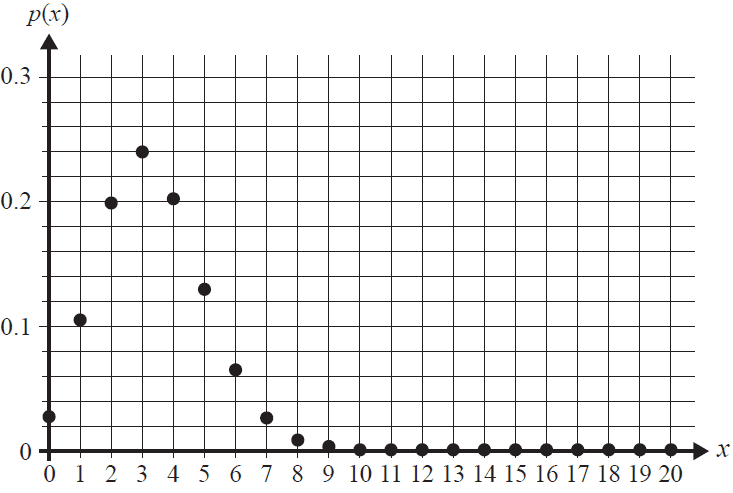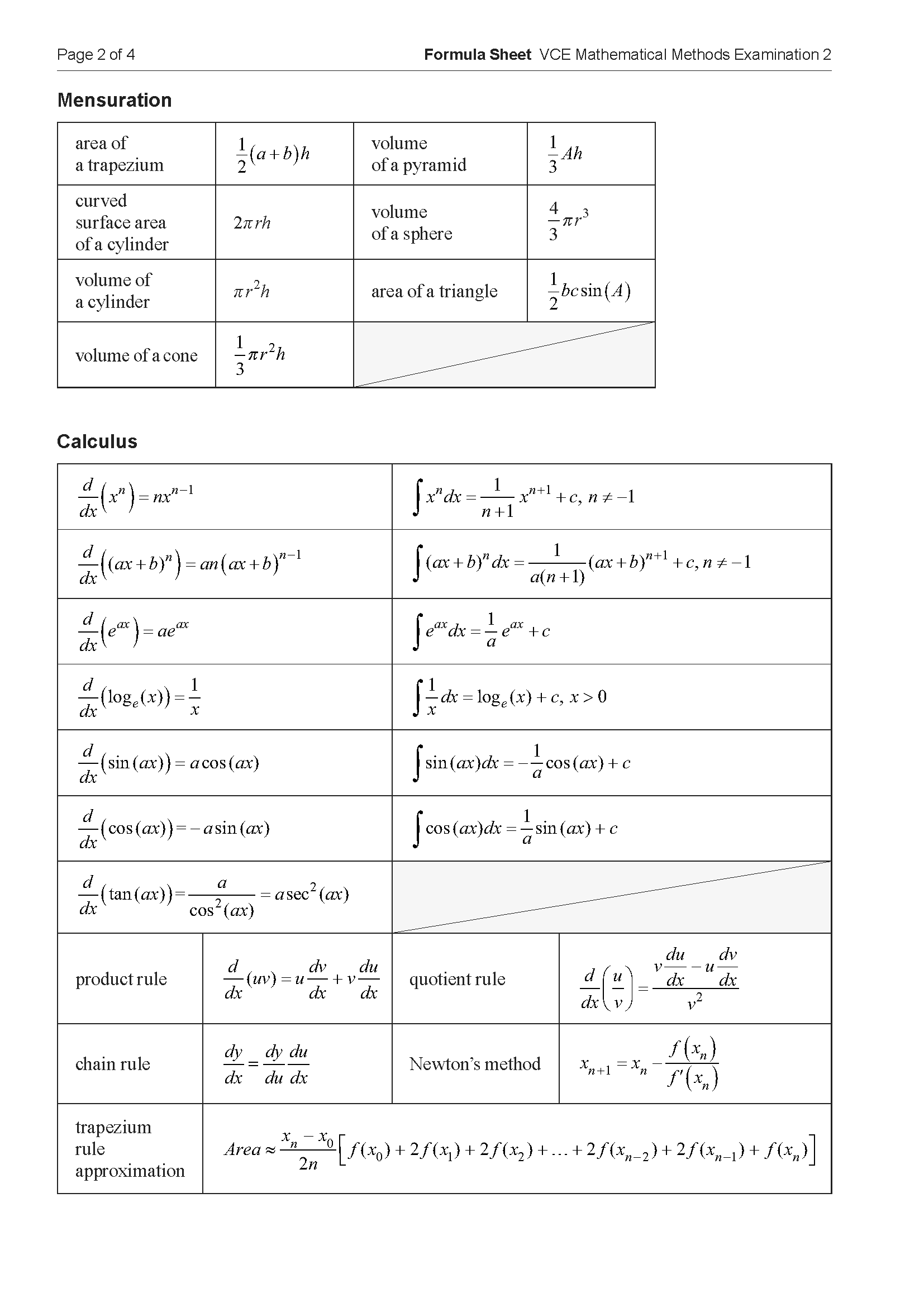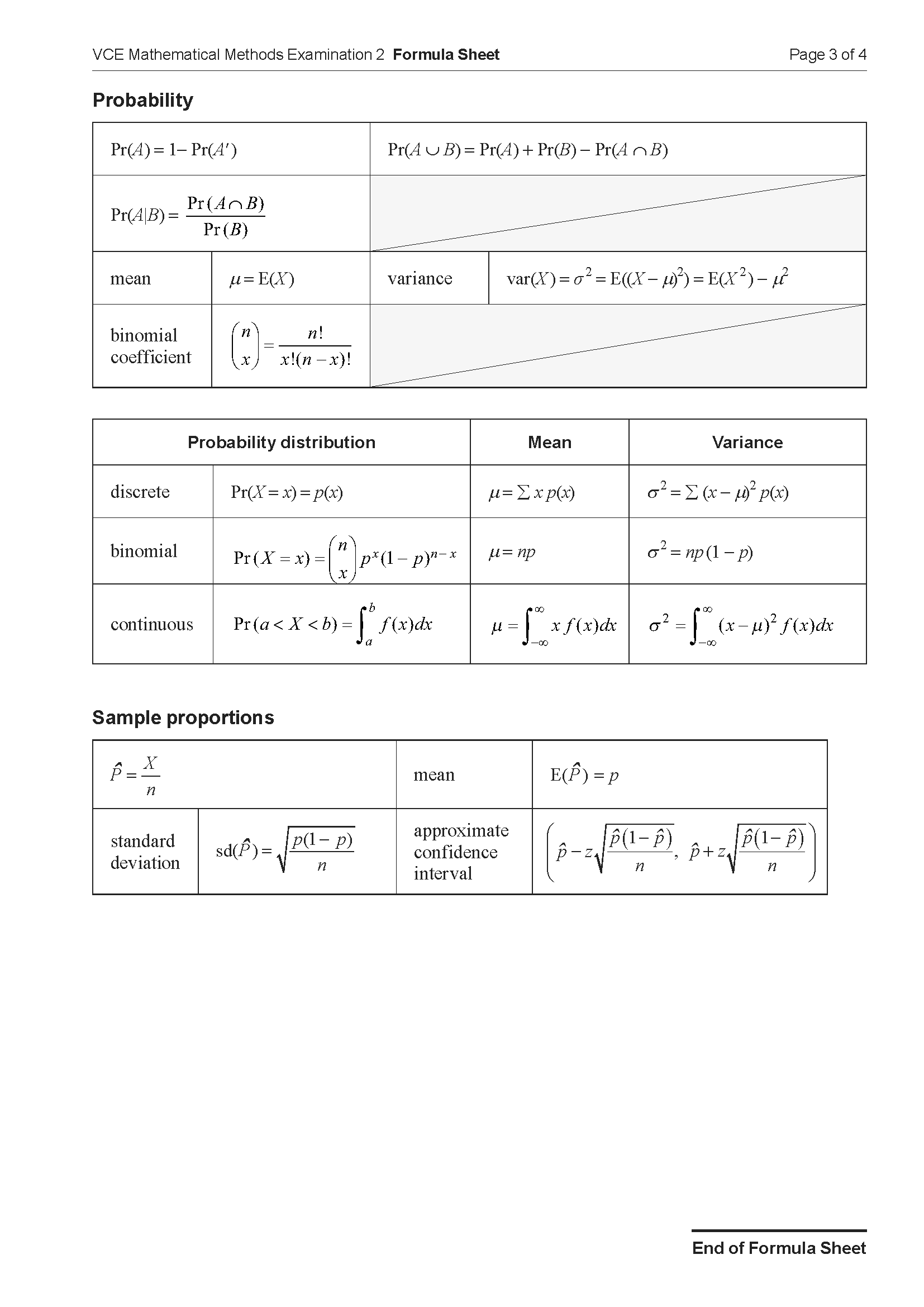VCE Maths Methods Binomial Probability Mini Test 1
Number of marks: 7
Reading time: 2 minutes
Writing time: 10 minutes
Section A – Calculator Allowed
Instructions
• Answer all questions in pencil on your Multiple-Choice Answer Sheet.
• Choose the response that is correct for the question.
• A correct answer scores 1; an incorrect answer scores 0.
• Marks will not be deducted for incorrect answers.
• No marks will be given if more than one answer is completed for any question.
• Unless otherwise indicated, the diagrams in this book are not drawn to scale.
If \( X \) is a binomial random variable where \( n = 20, p = 0.88 \), and \( \Pr(X \geq 16 \mid X \geq a) = 0.9175 \), correct to four decimal places, then \( a \) is equal to
- A. 11
- B. 12
- C. 13
- D. 14
- E. 15
Items are packed in boxes of 25 and the mean number of defective items per box is 1.4
Assuming that the probability of an item being defective is binomially distributed, the probability that a box contains more than three defective items, correct to three decimal places, is
- A. 0.037
- B. 0.048
- C. 0.056
- D. 0.114
- E. 0.162
Shown below is the graph of \(p\), which is the probability function for the number of times, \(x\), that a '6' is rolled on a fair six-sided die in 20 trials.

Let \(q\) be the probability function for the number of times, \(w\), that a '6' is not rolled on a fair six-sided die in 20 trials.
\(q(w)\) is given by
- A. \(p(20-w)\)
- B. \(p\left(1-\frac{w}{20}\right)\)
- C. \(p\left(\frac{w}{20}\right)\)
- D. \(p(w-20)\)
- E. \(1-p(w)\)
An archer can successfully hit a target with a probability of 0.9. The archer attempts to hit the target 80 times. The outcome of each attempt is independent of any other attempt.
Given that the archer successfully hits the target at least 70 times, the probability that the archer successfully hits the target exactly 74 times, correct to four decimal places, is
- A. 0.3635
- B. 0.8266
- C. 0.1494
- D. 0.3005
- E. 0.1701
End of Section A
Section B – No Calculator
Instructions
• Answer all questions in the spaces provided.
• Write your responses in English.
• In questions where a numerical answer is required, an exact value must be given unless otherwise specified.
• In questions where more than one mark is available, appropriate working must be shown.
• Unless otherwise indicated, the diagrams in this book are not drawn to scale.
Let \( X \) be a binomial random variable where \( X \sim \text{Bi}\left(4, \frac{9}{10}\right) \).
a. Find the standard deviation of \( X \). 1 mark
b. Find \( \Pr(X < 2) \). 2 marks
End of examination questions
VCE is a registered trademark of the VCAA. The VCAA does not endorse or make any warranties regarding this study resource. Past VCE exams and related content can be accessed directly at www.vcaa.vic.edu.au

